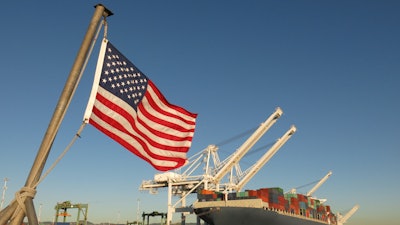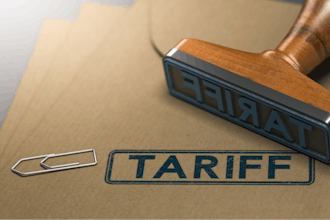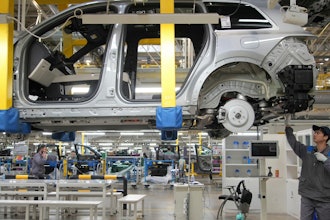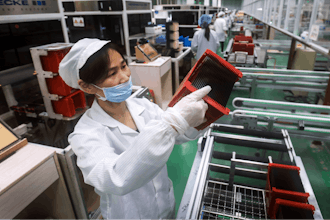
China continually challenges the U.S. by ignoring free-market rules and doing whatever it takes to capture market share. Meanwhile, the U.S. looks the other way when China breaks the rules, thus encouraging them to do it again.
President George W. Bush's administration negotiated with China for two years but never laid out any real targets for the country and did little to protect American manufacturing. The Bush administration filed a report in 2006 that cited Chinese barriers to some U.S. exports, failure to protect intellectual property and labor rights, and extensive government subsidies. But then there was no enforcement—nothing happened after the report.
The Obama administration also held many meetings with the Chinese, during which they discussed climate change, the South China Sea, United Nations issues, green ports, and illegal animal trade. However, like Bush, Obama never pursued reshoring manufacturing during his eight years in office and never enforced existing agreements.
Every Congress and administration since President Bill Clinton has ignored China's illegal strategies. Instead of facing up to the problems, the U.S. has chosen dialog, diplomacy, and collision avoidance over enforcement.
This policy is generally called forbearance, which means "refraining from enforcement of what is due." It is based on the illusion that China would eventually see its interests best fulfilled by following the rules. Some 23 years after China joined the WTO, these policies have failed, and China has won.
We Let This Happen
America has been complicit in its demise by politically ignoring China's unfair and illegal strategies for years. Until Donald Trump countered China by imposing tariffs, both Democratic and Republican politicians did nothing to stop China's illegal and unfair policies. We naïvely supported our economic philosophy of free trade because of our stateless multinational corporations who rely on imports, while China pursued mercantilist strategies and played by their own rules. As it turned out, making a trade agreement with China without enforcing penalties for cheating is a long-term ticket to economic oblivion.
Chinese Solar Subsidies
China dominates the global solar industry with an 80% share. Even though the Chinese solar industry is losing millions of dollars, it is kept in business by massive government subsidies, allowing them to dump solar panels into the U.S. below their costs to gain market share. This subsidized price cutting threatens the existence of U.S. solar manufacturers. The bankruptcies have already begun. After reporting a $36 million loss on $29 million of revenue, California solar installer Sunworks filed for bankruptcy and is being liquidated.
Furthermore, in August 2023, the Commerce Department found that Chinese companies operating in Mexico, Malaysia, Thailand, Vietnam, and Cambodia illegally circumvent existing anti-dumping and countervailing duty orders on solar cells and modules. Unless China stops subsidizing and price-cutting, it will drive out all U.S. competitors and dominate our market.
Mexican Steel Dumping
Mexican companies are selling steel conduit way above the 2019 United States-Mexico-Canada Agreement. Between 2017 and 2022, there was a 73% increase in Mexico's steel goods exported to the U.S. Mexico has taken advantage of its favored trade relationship and is deliberately dumping steel conduit into America.
Senator Sherrod Brown introduced the Stop Mexico Steel Surge Act, which would reinstate a 25% Section 232 steel tariff. So far, the administration and Congress have failed to implement the new legislation.
Illicit Fentanyl
Some 112,000 people die annually from illegally imported fentanyl. Investigators for a U.S. House committee released a report detailing new evidence that the Chinese government is continuing to subsidize the manufacturing and export of illicit fentanyl directly.
According to the report, Chinese officials encourage the production of precursor chemicals by giving monetary grants to companies trafficking in fentanyl materials. A great deal of fentanyl comes into the country because of the loophole in the de minimis law, but Congress hasn't been willing to change the law.
Flood of Chinese EVs
Chinese electric vehicle makers have driven down battery and production costs and flooded EV markets with new models. China is coming after the U.S. EV market with a new Seagull vehicle that sells for $12,000. China's state-supported industry fosters overcapacity, which brings prices down so low that it eliminates competition. The U.S. has not been able to come up with any enforceable penalties for state-sponsored subsidies or dumping.
Forced Labor Problems
Congress passed the Uyghur Forced Labor Prevention Act (UFLPA) in 2021 to prevent Chinese companies that use forced labor in Xinjiang province from shipping apparel, cotton, tomato and silica-based products into the U.S.
China has called these allegations involving Uyghurs the "lie of the century," and the Chinese Communist Party has made it clear that they will not tolerate investigations into forced labor. Various forms of forced labor have been documented by human rights groups, the State Department, and the U.S. Department of Labor. The government knows that a lot of cotton and solar panels coming from Xinjiang province are the result of Uyghur labor. But so far, Customs Border Protection hasn't been able to enforce the UFLPA.
Delisting Setbacks
The Holding Foreign Companies Accountable Act was passed in December 2020 to delist foreign companies that would not allow U.S. regulators to audit their books. The law was specifically aimed at Chinese companies tied to the Chinese Communist Party and the People's Liberation Army.
As of January 8, 2024, 265 Chinese companies with a total market capitalization of $848 billion were listed on three U.S. exchanges. The Securities and Exchange Commission has fumbled around for three years since this law was passed and has not delisted one Chinese company.
Change Is Coming
So, what good is it to pass laws if we are not willing to enforce them? The Biden Administration announced on May 14 that it will raise tariffs on $18 billion of China imports under Section 301 of the Trade Act. The tariffs target electric vehicles, batteries, steel and aluminum, semiconductors, ship-to-shore cranes, medical products, and solar cells. The move suggests that the administration knows that negotiating with the Chinese is an exercise in futility, and the only methods that seem to work are monetary.
Perhaps the government has finally accepted that our free enterprise system is incompatible with China's state-owned, state-controlled, and state-subsidized economic system, and by allowing access to our products, technologies, and markets, we are funding China's growth and our own demise.
Hopefully, the new tariffs will signal a new approach to trade, in which the U.S. will protect vital industries and technologies through strong enforcement. Tariffs alone probably won't stop China from cheating, but they will certainly hinder China's strategy of dominating markets with state-owned enterprises, subsidies, and dumping products below cost.
Michael Collins is the author of "Dismantling the American Dream: How Multinational Corporations Undermine American Prosperity." He can be reached at mpcmgt.net.






















